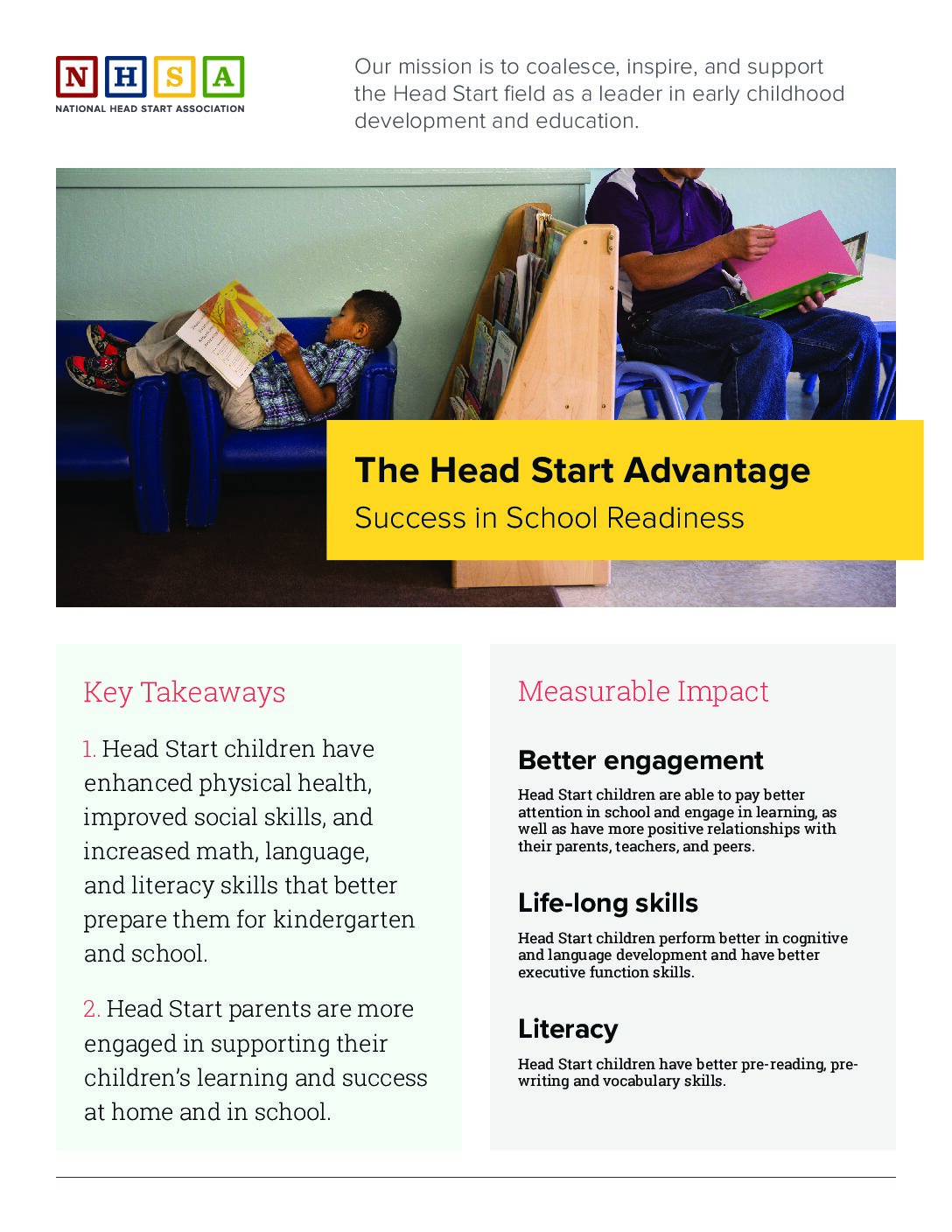School readiness describes the level at which children possess the skills, knowledge, and attitudes necessary for success in school and life. The Head Start Early Learning Outcomes Framework (ELOF) outlines and describes the essential behaviors and concepts. The framework consists of five domains: approaches to learning; social and emotional development; language and literacy; cognition; and perception, motor, and physical development.
Development in these five areas lays the foundation for a child’s future educational, social, and economic success. Sadly, academic achievement gaps between higher- and lower-income students have increased in the past three decades, and these disparities are present when children enter kindergarten and persist as children progress throughout school.
What does the research say about Head Start’s impact on school readiness?
Research shows early learning habits and outcomes largely predict later academic performance. For instance, self-regulation skills promote or limit a child’s capacity to follow classroom rules, sit still, and learn.
- Head Start children pay better attention in school, engage in learning, and have positive relationships with parents, teachers, and peers.
- Head Start children have enhanced physical health, improved social skills, and increased math, language, and literacy skills that better prepare them for kindergarten and school.
- Parents in Head Start are more engaged in supporting their children’s learning and success at home and in school.
Download the School Readiness fact sheet, explore the research citations, and dig deeper into the Head Start Advantage.

